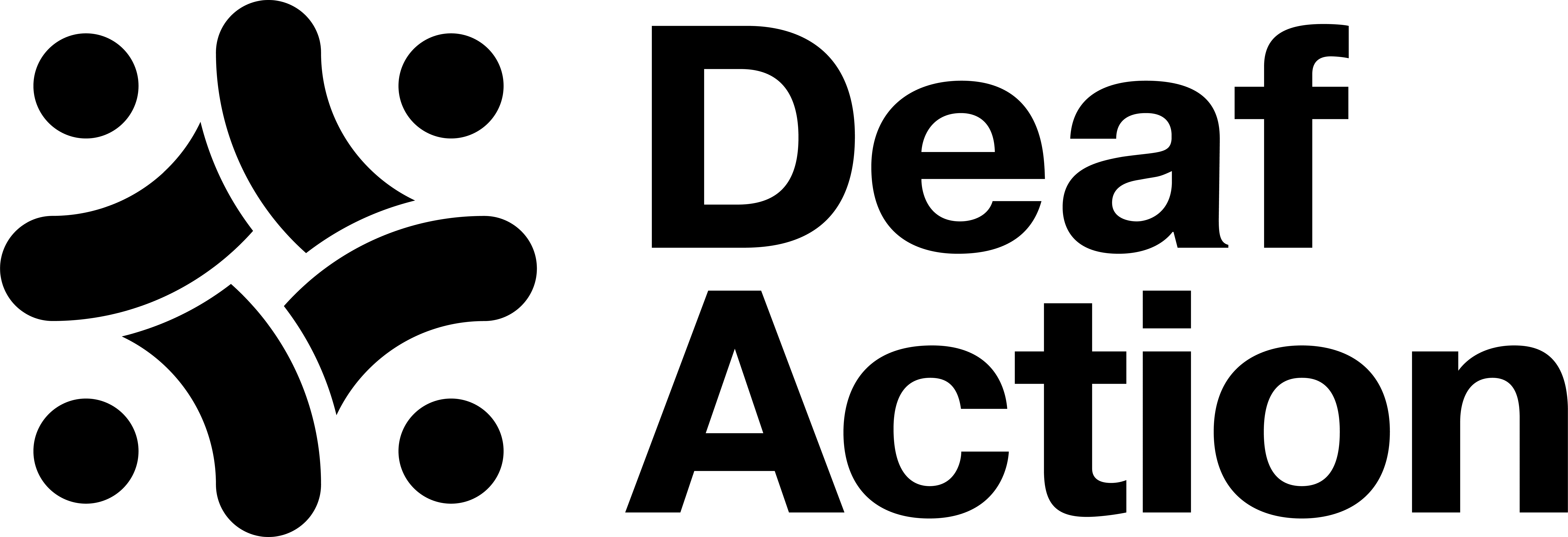Philip Gerrard, CEO of Deaf Action
My background
As this blog will be a dedicated space for me to post my opinions and experiences both professionally and personally, I thought I would start by introducing myself so you can get an understanding of who I am and where I am coming from.
Firstly, I should start by saying that I am deaf. My family comprises of at least nine generations of deaf people of whom have different degrees of deafness from a gradual or sudden loss of hearing, moderate to profound deafness to no hearing loss at all.
I am profoundly deaf and have had a cochlear implant since November 2013 due to total loss of residual hearing, rendering my hearing aids obsolete. Before that, I was a lifelong hearing aid wearer. It has been an interesting journey, to say the least. At a later point, I plan to discuss my experience of transitioning to a cochlear implant, and what this has meant for me.
In terms of communication, I am fluent in BSL and English and use spoken English. This shows I can choose specific communication methods to use depending on the context and come from an informed point of view as someone who is fluent in these modalities.
Raised in Birmingham, my formative years were spent mainly in the Midlands. I attended mainstream school as well as a deaf school and a boarding school for deaf children in Berkshire.
In addition to this educational experience, I have had the benefit of comparing experiences in education over the years as a deaf parent to two deaf and two hearing children.
Deaf sport
It is not possible to introduce myself and not mention my love for deaf sport. Deaf sport was – and is – a vital aspect of deaf culture and community, providing opportunities not only to compete in sports but to volunteer and socialise – it is a great way to meet people from all over, reducing social isolation and expanding deaf networks.
Even before I was born, my family was heavily involved in deaf sport. My paternal grandmother set up the first deaf women sports league in the Midlands in 1954. My father was well-known for his contribution to deaf sport, administrating for many deaf sporting events and clubs, and played football. My mother was also part of a social group that would meet up at sporting events. In fact, that is how my parents met – the rest is history!
While growing up, deaf sport was a huge part of my life, forming the main source of my social interaction with other deaf people outside of the deaf club. Aged twelve, I was taking minutes for Birmingham Deaf Football Club. I went on to serve as a secretary, trustee, delegate, and founding member of various organisations including UK Deaf Sport, which is nationally renowned for its ongoing role in the Deaflympics (the deaf equivalence of the Paralympics). Incidentally, this is a topic I would love to discuss on this blog!
Presently, my involvement with deaf sport includes representing UKDS internationally and playing with the Edinburgh Deaf Futsal Team. I have even tried a spot of curling!
My career
In my early career, I worked as a payroll clerk – I do find it hard to imagine doing that now as my working day is so different as CEO of a deaf charity! During that time, I did voluntary work, setting up a youth club for deaf children. Eventually, aged 26, I became CEO of a disability organisation in the East Midlands for three years before becoming CEO of a deaf organisation in the West Midlands. I was in this role for 18 years before accepting the role of CEO of Deaf Action in 2018. I wonder if you can now guess my age?!
There is a common thread in my life with consistency in my values and principles applied to everything I do. I strongly believe in social justice, empowerment, access, advocacy, partnership working, and quality standards.
Naturally, as a deaf person, I have encountered barriers in society – both personally and professionally. Even more so as a deaf CEO working with deaf people. Over the years, I have worked hard to implement these values in practice.
An example of quality assurance in practice is when I campaigned for a professional register for interpreters, a campaign that ultimately led to the establishment of the NRCPD, now the nationally recognised registration body and professional standard for communication professionals. Its purpose is to safeguard deaf people and service providers by ensuring there are professional standards in place as well as the recognition of the skills and expertise of the communication profession. I do believe it is important to work together as interpreters facilitate access which can empower deaf people.
Empowering deaf people
On the topic of empowerment, this is a major theme in my work and my life. My initial ambition as a young child was to become a factory worker like my father. While there is absolutely nothing wrong with this aspiration, it was the only thing I could think of for my future. Due to good teachers for the deaf and deaf role models, I was able to expand my horizons and change my expectations of myself. This empowered me to make my own way in life. An example of this in working practice is Deaf Action’s implementation of a lipreading class model in Dundee wherein students eventually become facilitators of their own group. This has already proven successful with people taking turns to lead. That is empowerment in action.
My hope is that I can effectively use my platform and my privilege as a deaf CEO to embed institutional advocacy in practice – showing deaf people their potential, making others aware of that potential, and working in partnership with others to benefit society as a whole.

